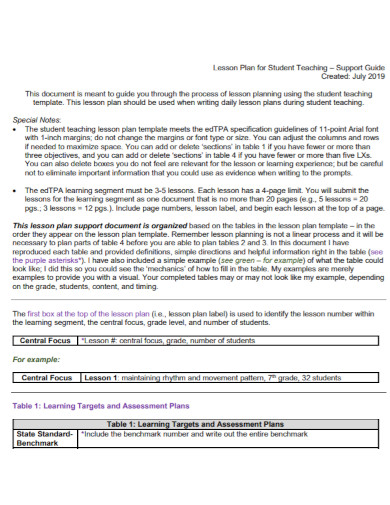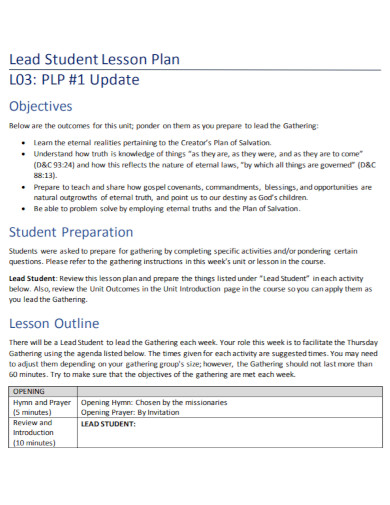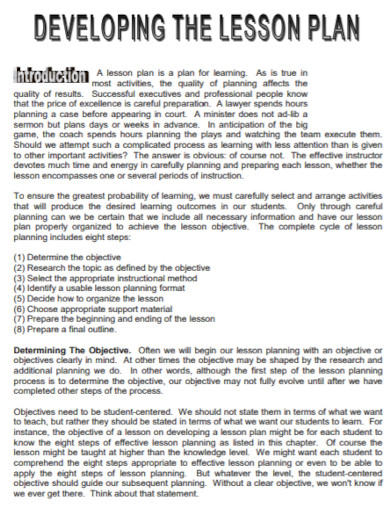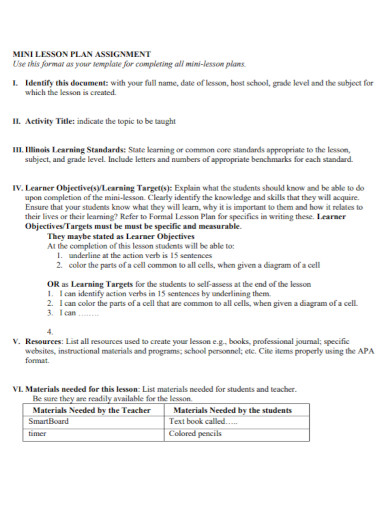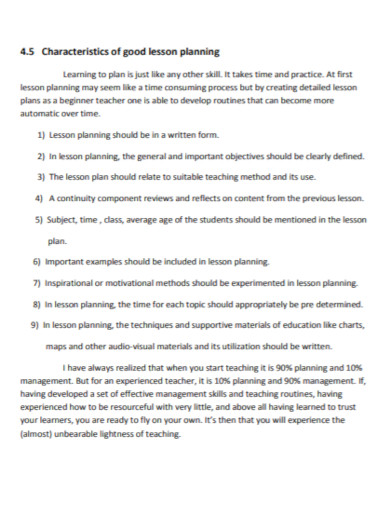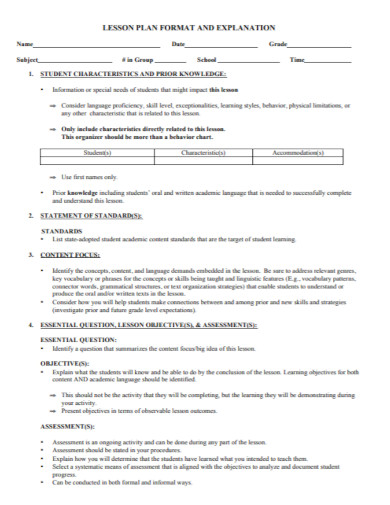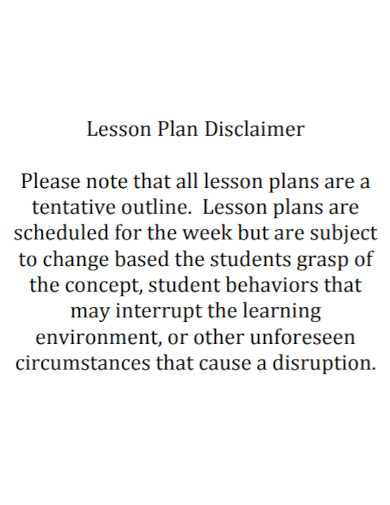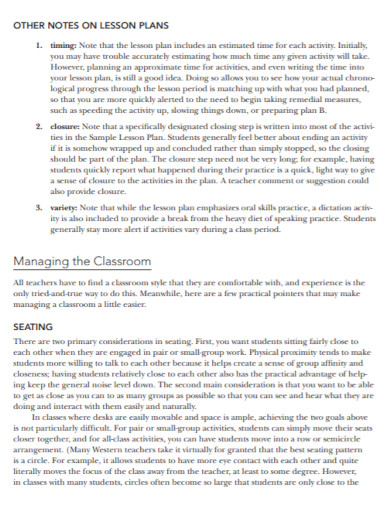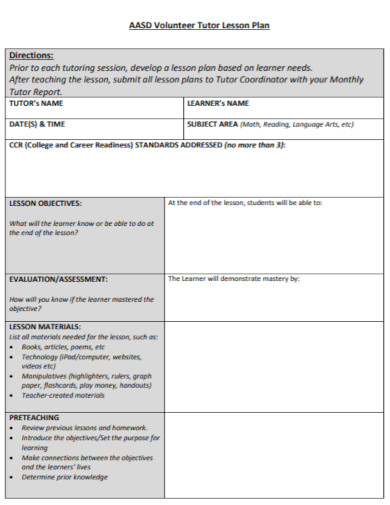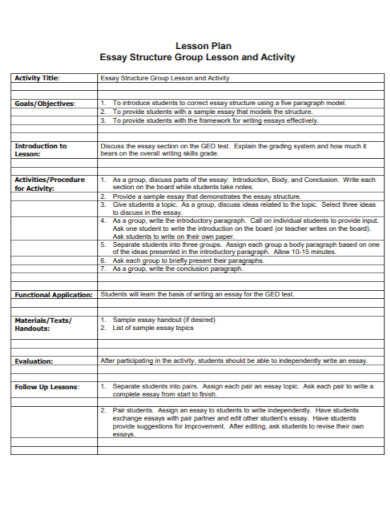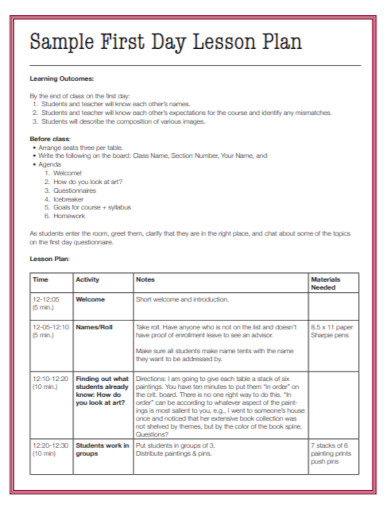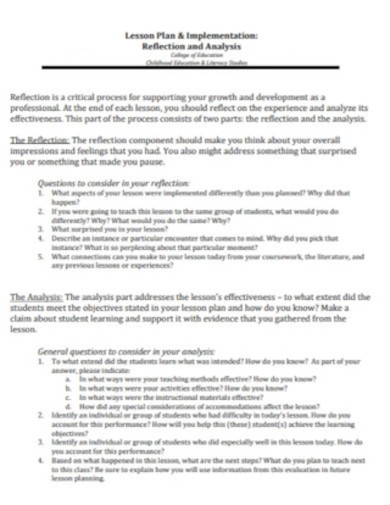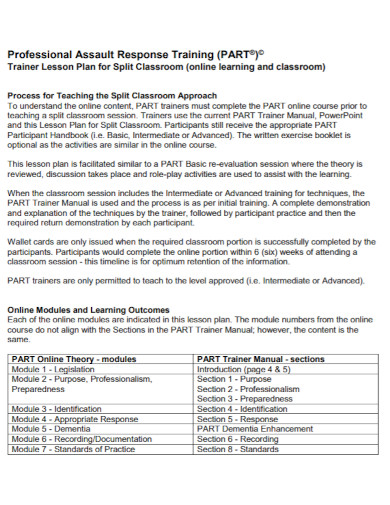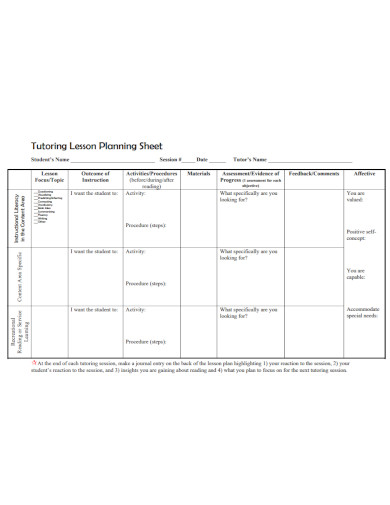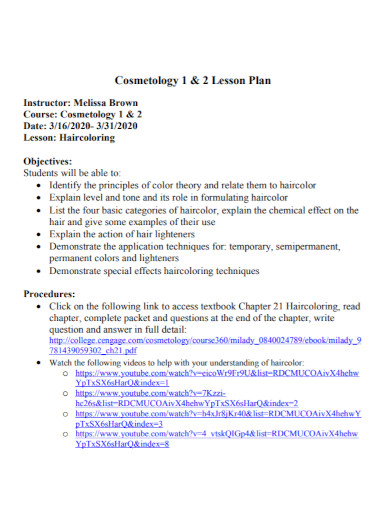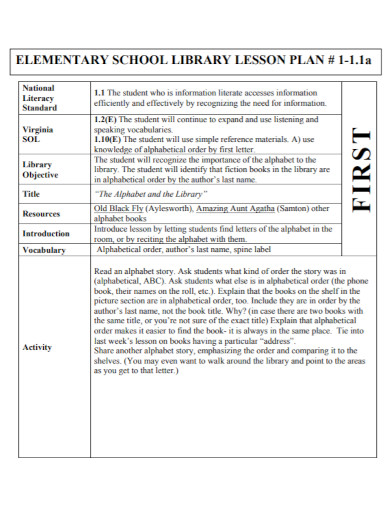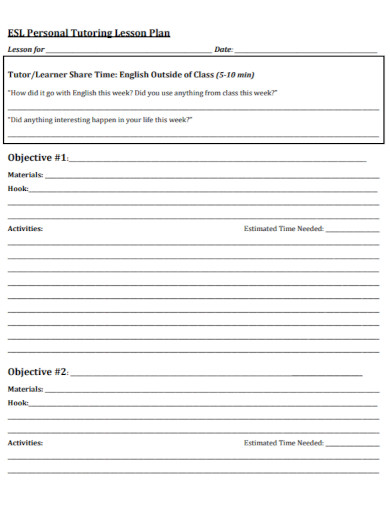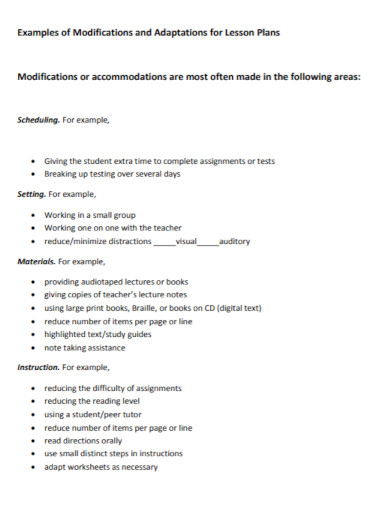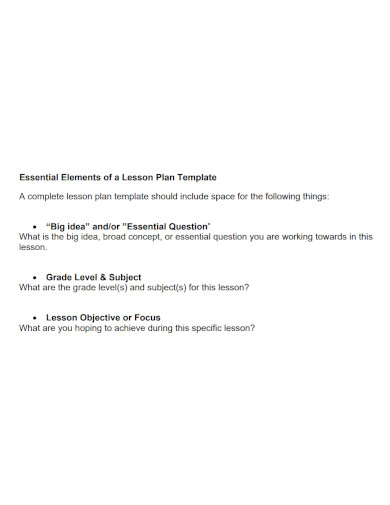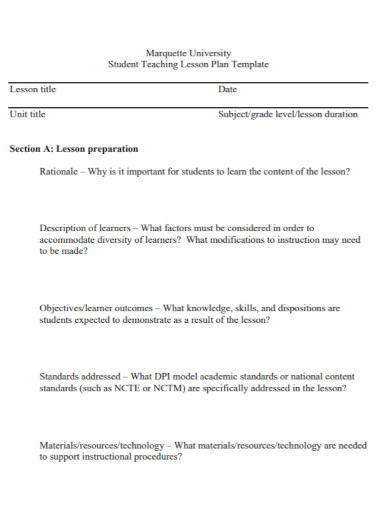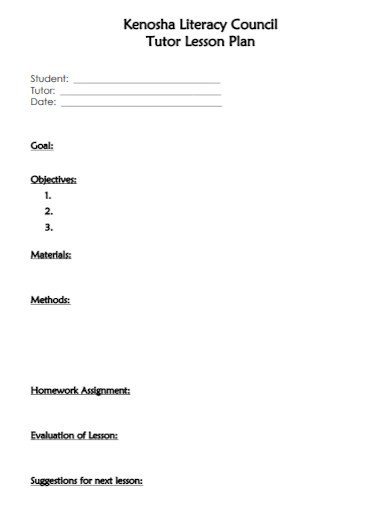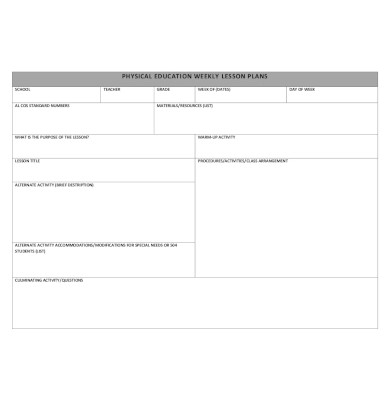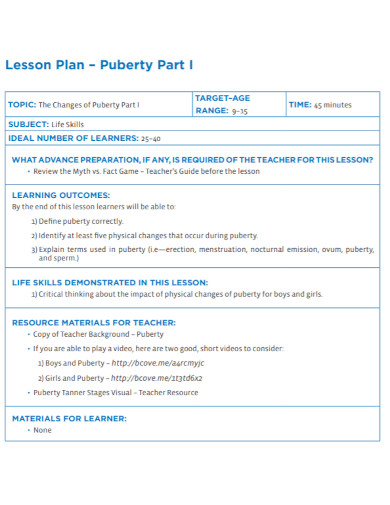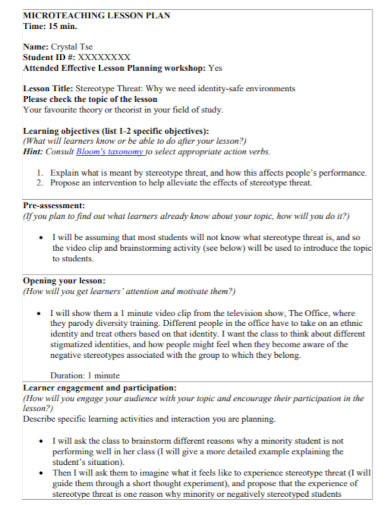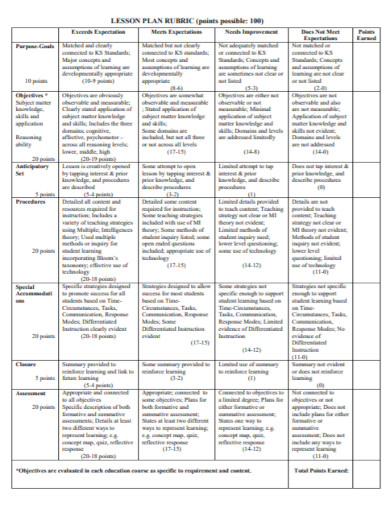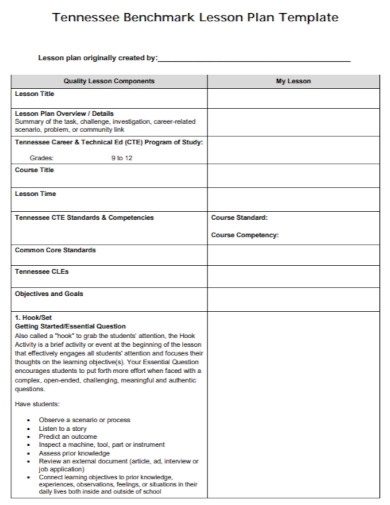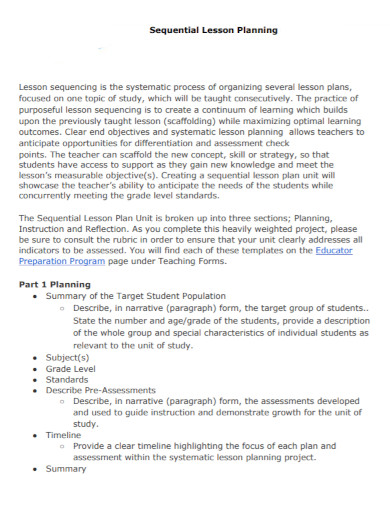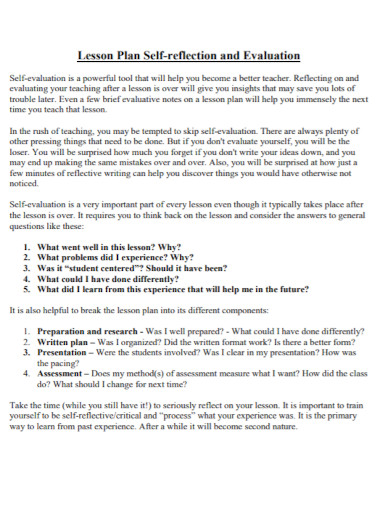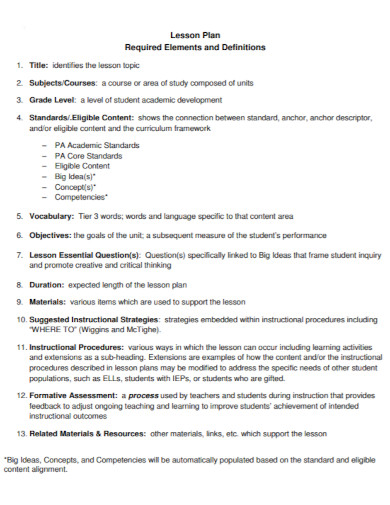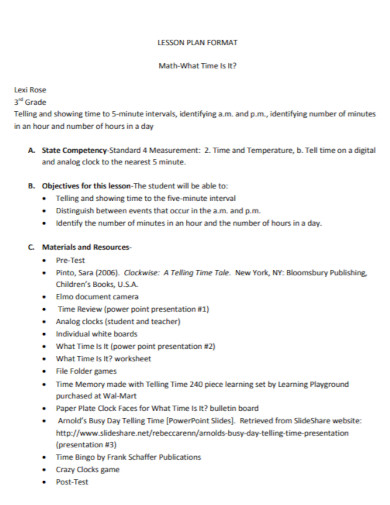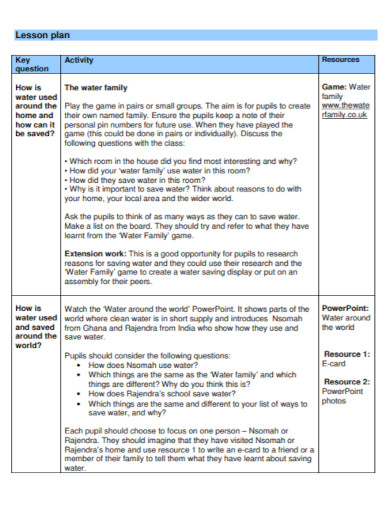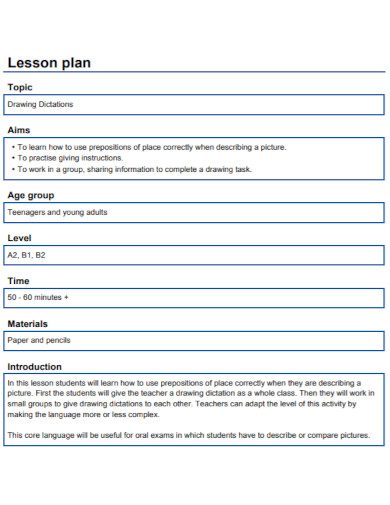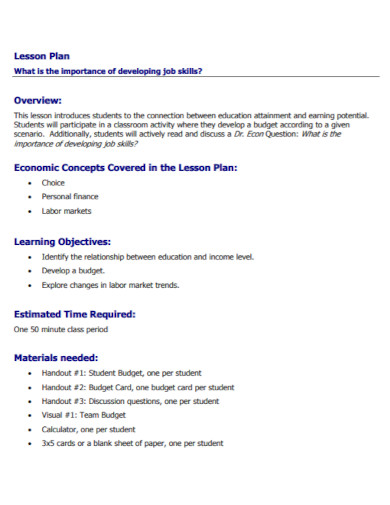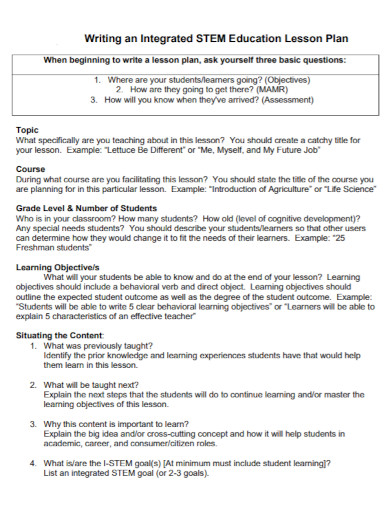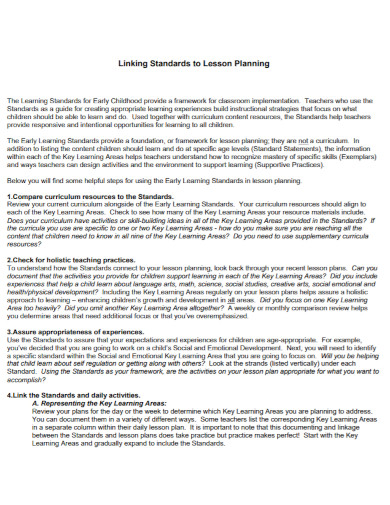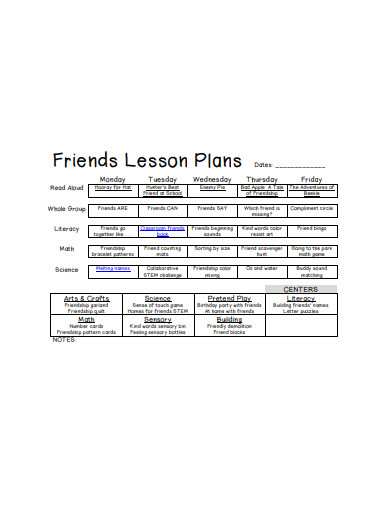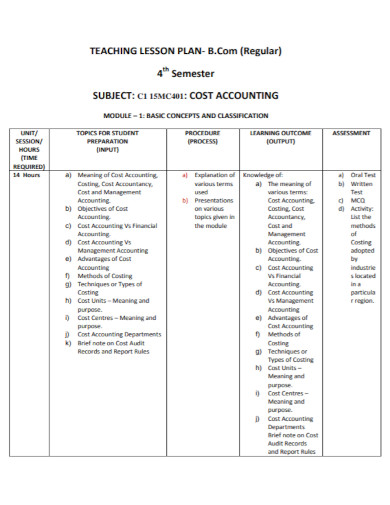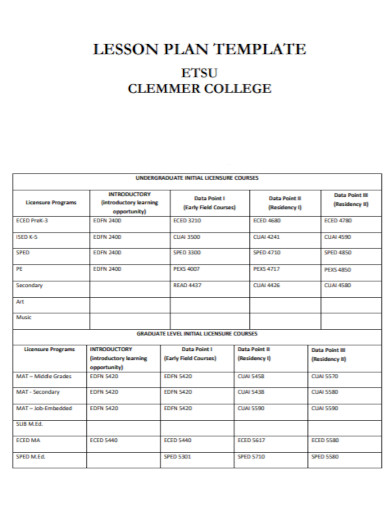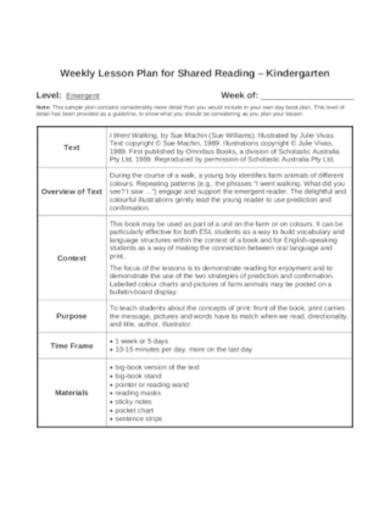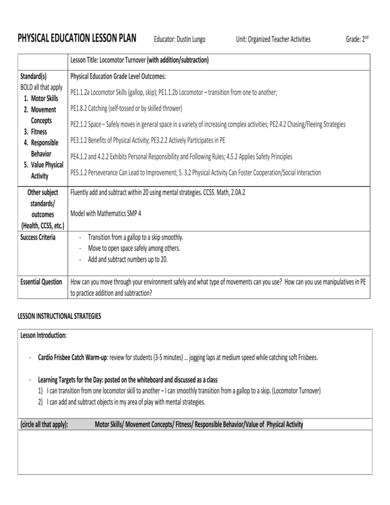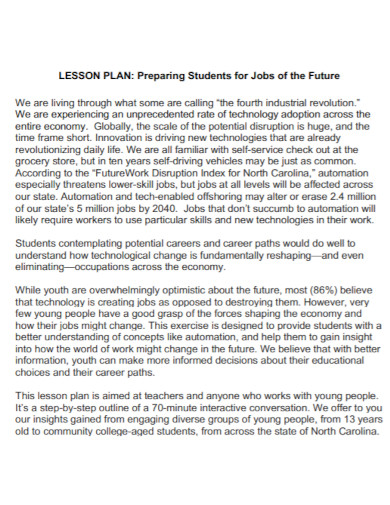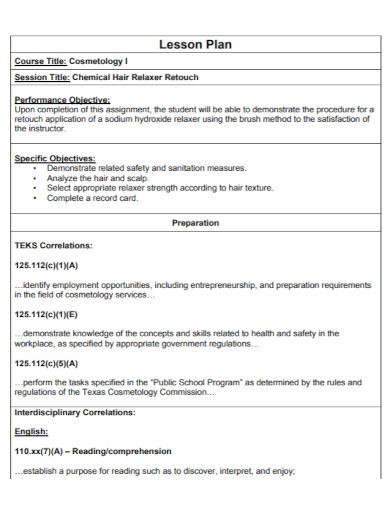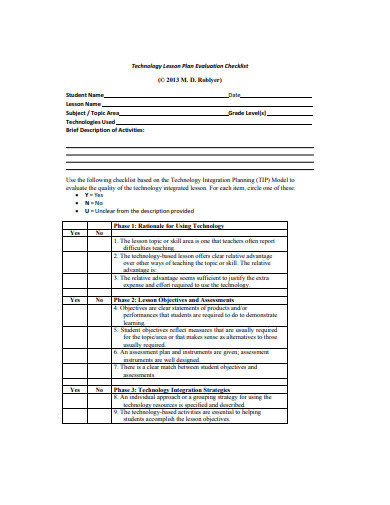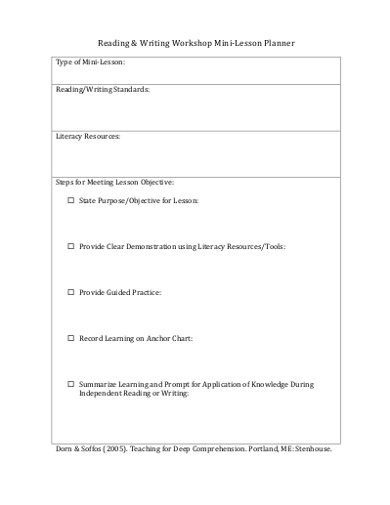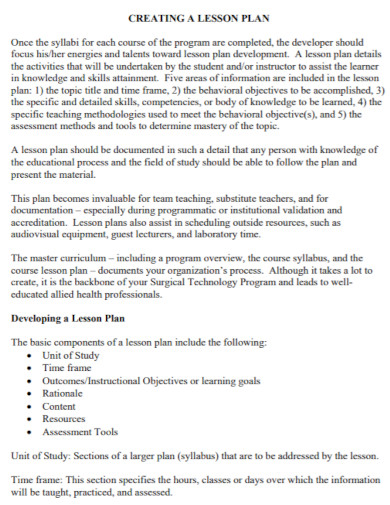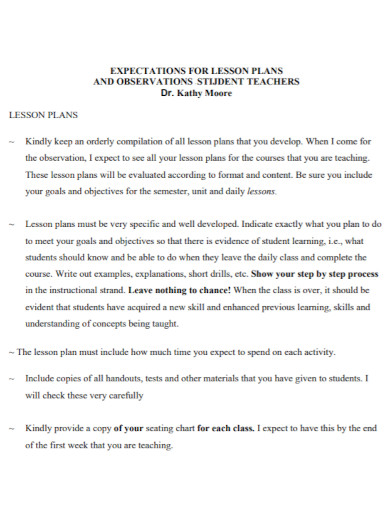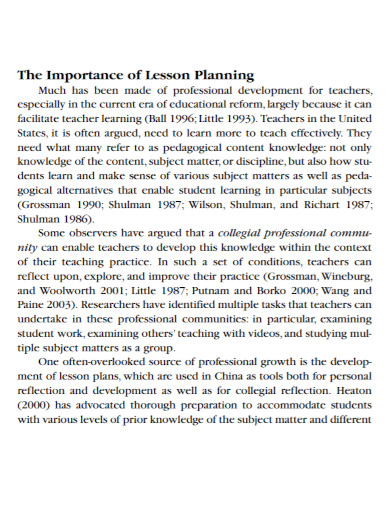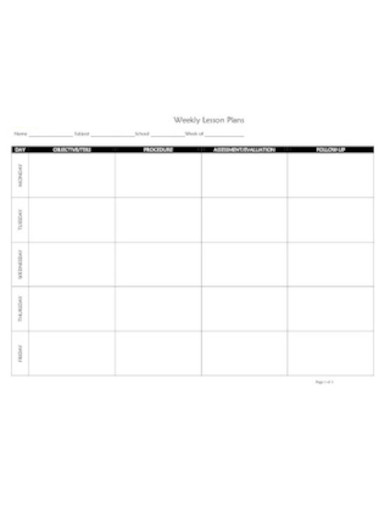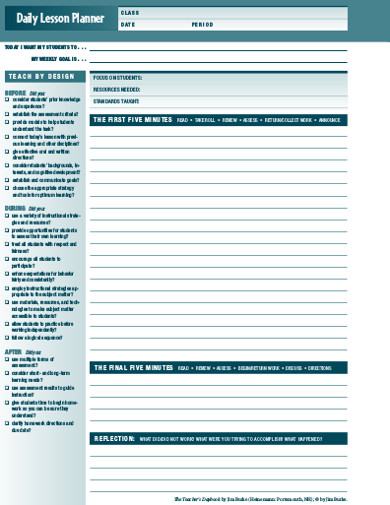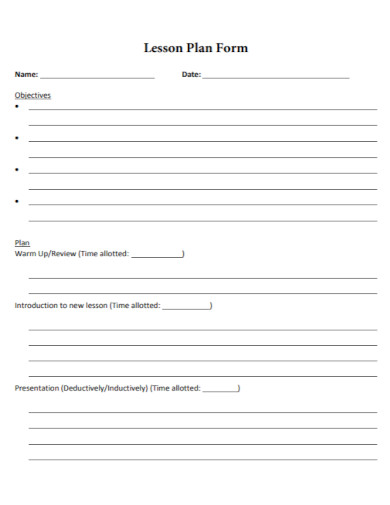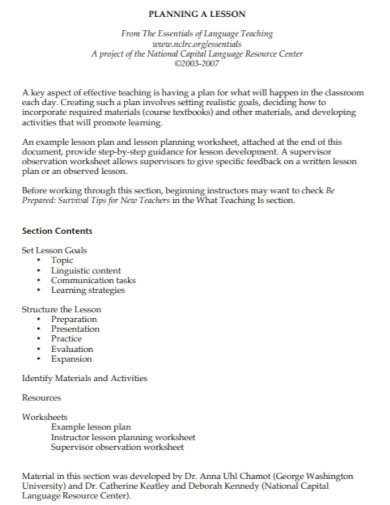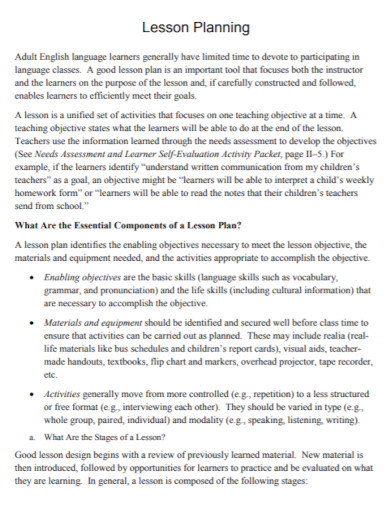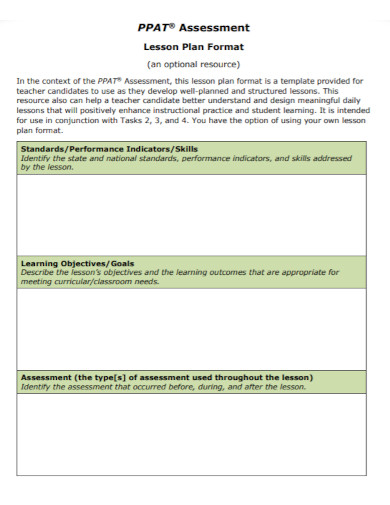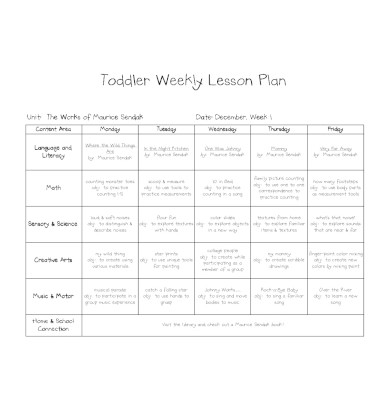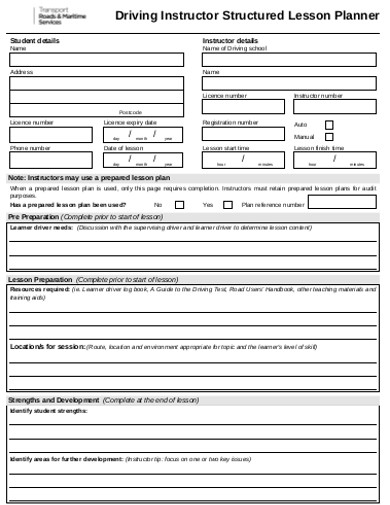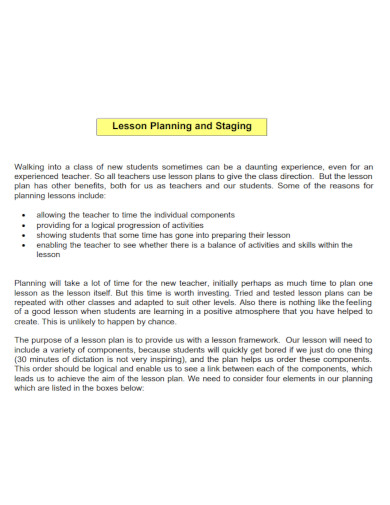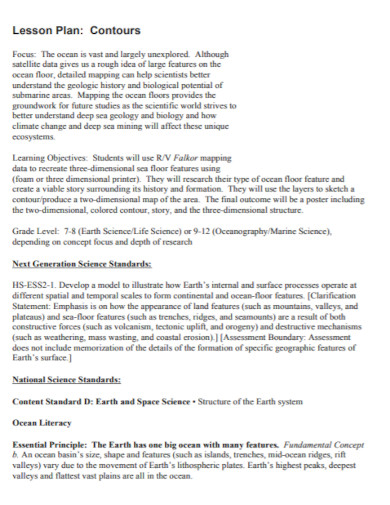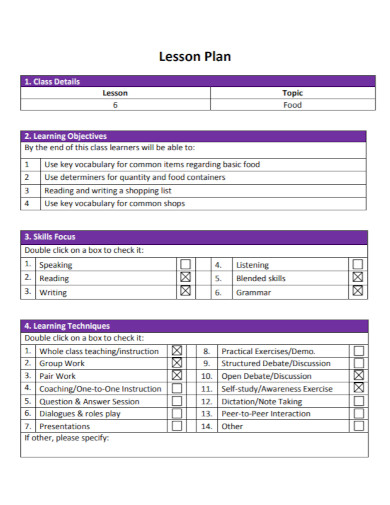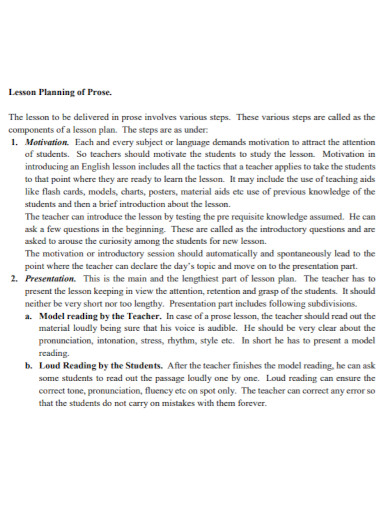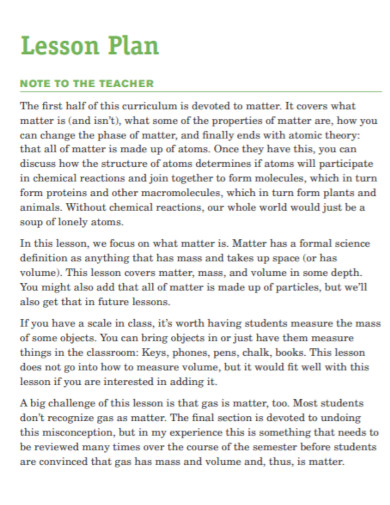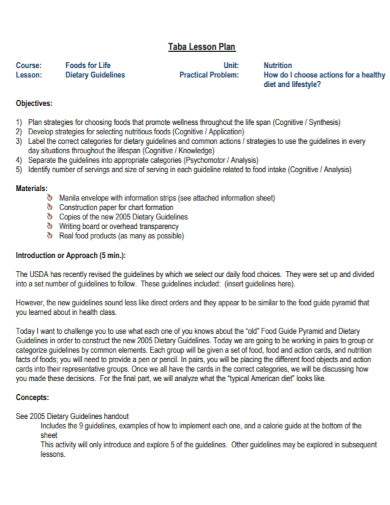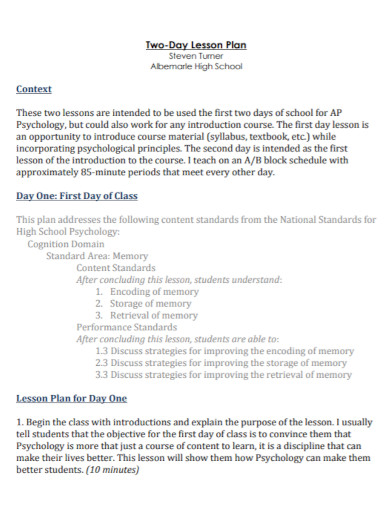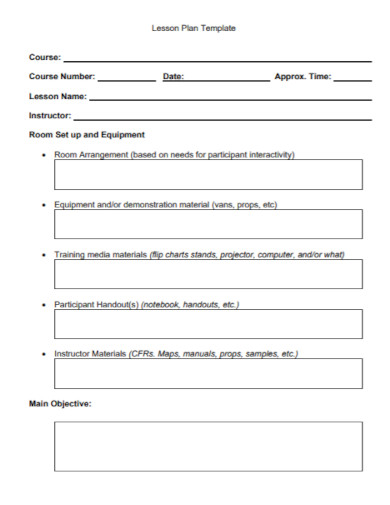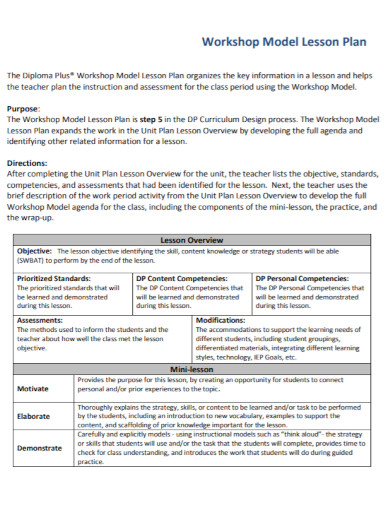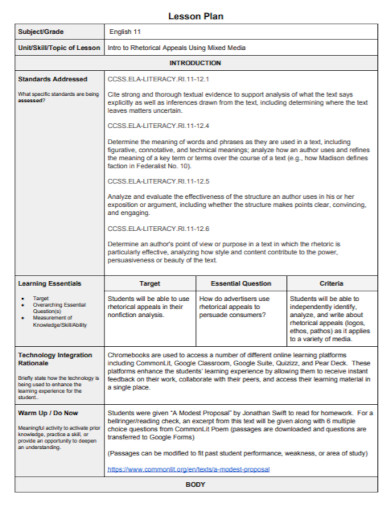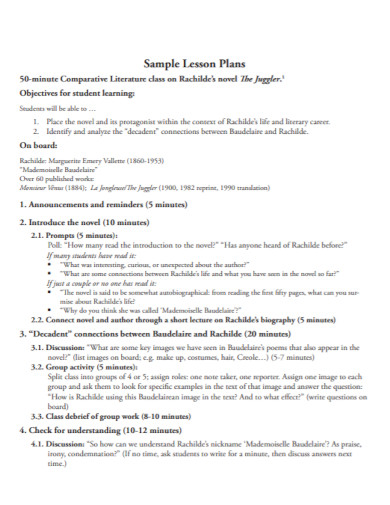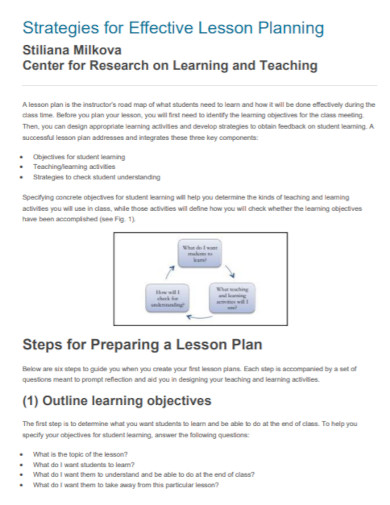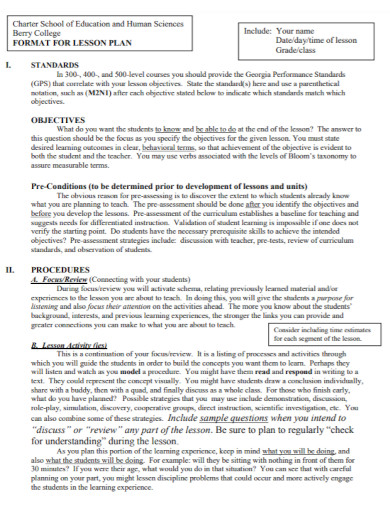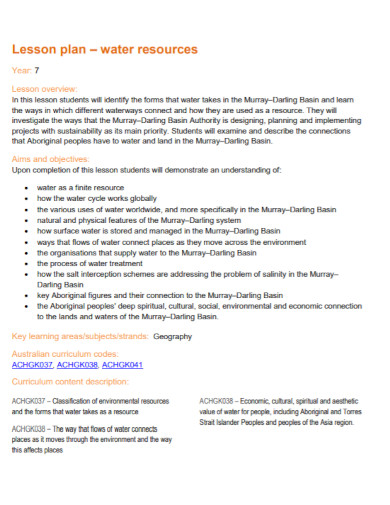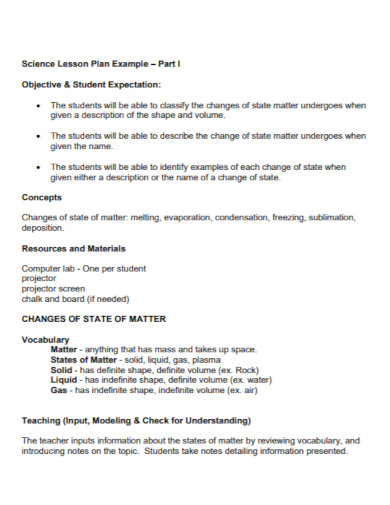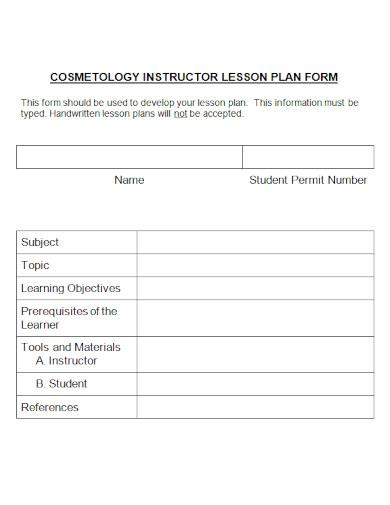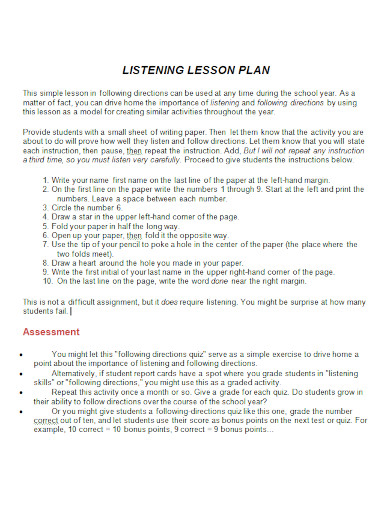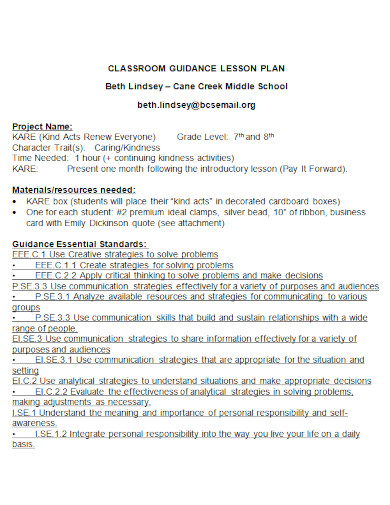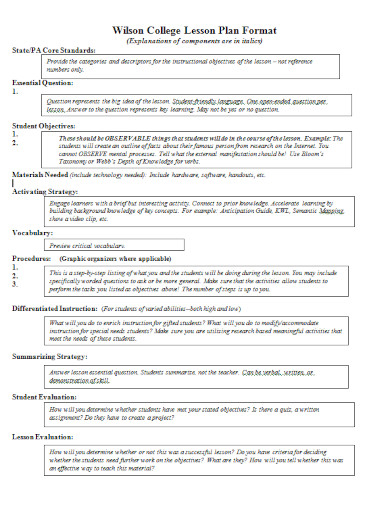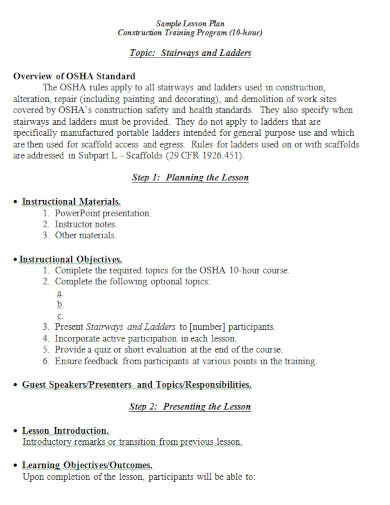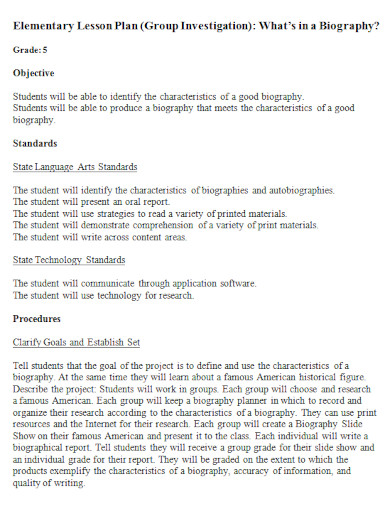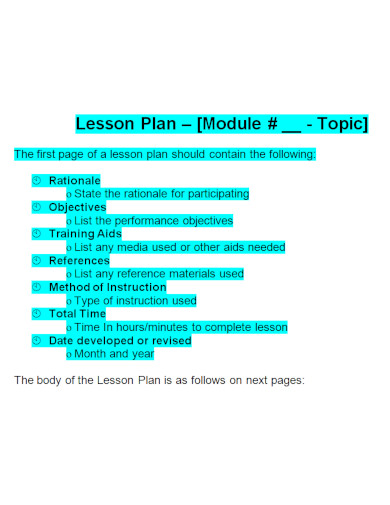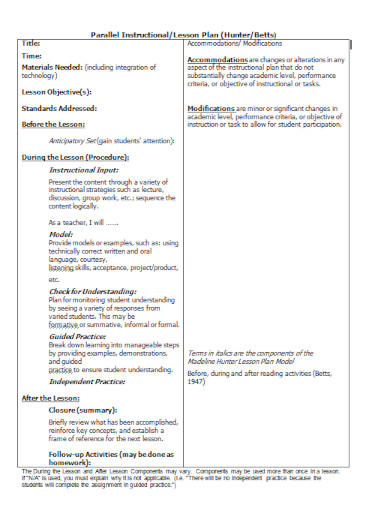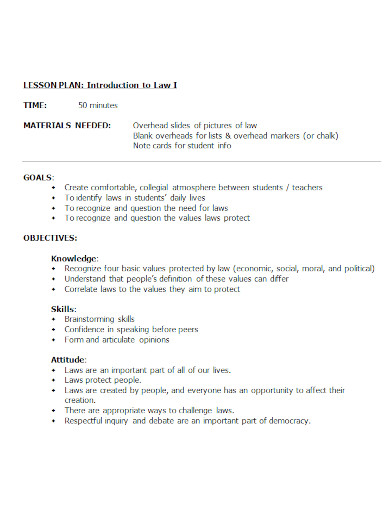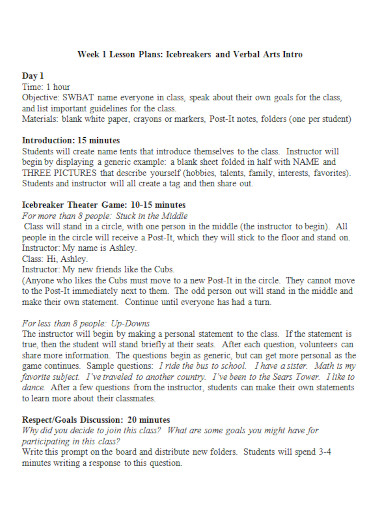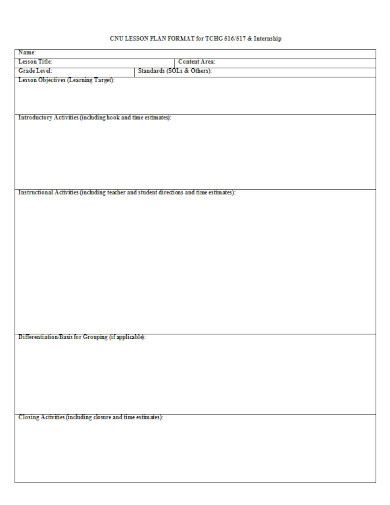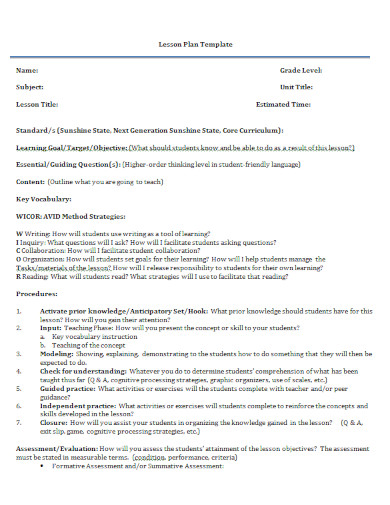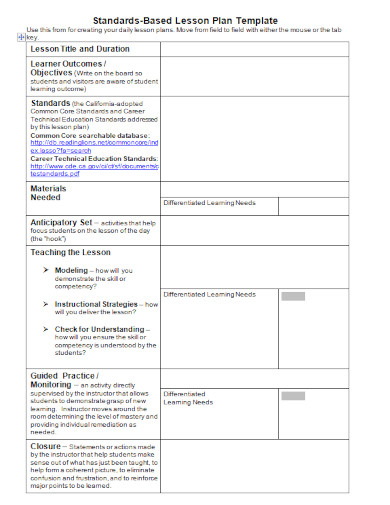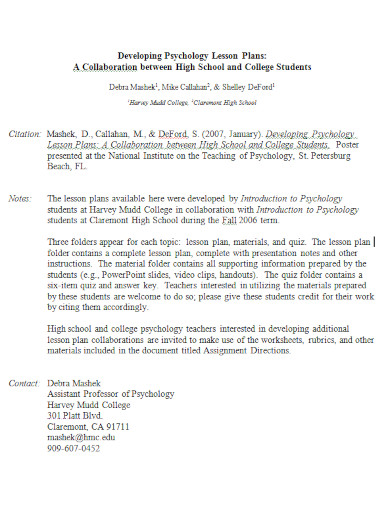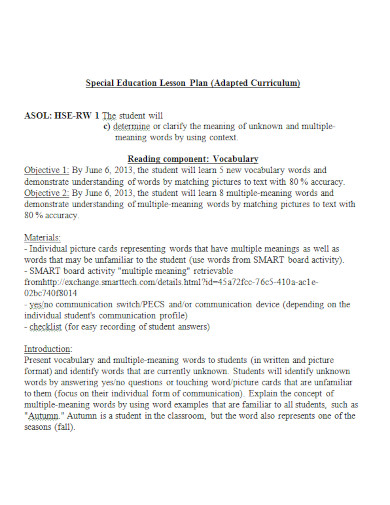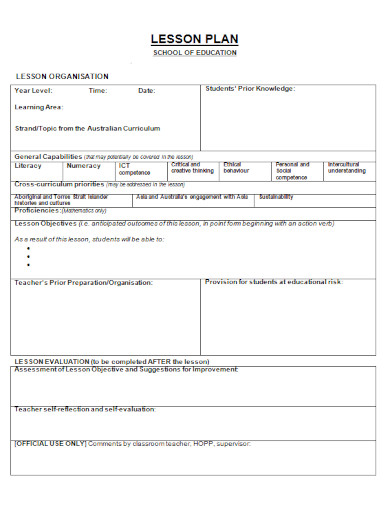99+ Lesson Plan Examples to Download
“I am not a teacher, but an awakener.” – Robert Frost. Have you ever wanted to be a teacher? There are, of course, others who believe this to be a lifetime’s worth of lessons type of job. As teaching is never an easy job nor an easy task to begin with, let alone making plans on how you go about teaching your students the daily things they must learn. It is also not the brightest idea to just “wing it” and see the outcome. For those who believe that teaching is the easiest way to get everything done, especially without the thought of a lesson plan, let me tell you this: it is simply like going to war without any idea of what you should do, and what you should say. This is the reason why there is a plan, a plan for everything. For teachers, this is what a lesson plan is for, and with the help of well-structured lesson plan templates, the process becomes more organized and efficient. Now, you may go around wondering how a lesson plan is made. Is it difficult or different? Is it necessary? How do I even begin writing a lesson plan? Confused? Curious? Interested? I suggest you scroll through and check out the examples along the way.
100+ Lesson Plan Examples
1. Lesson Plan Mind Map Template
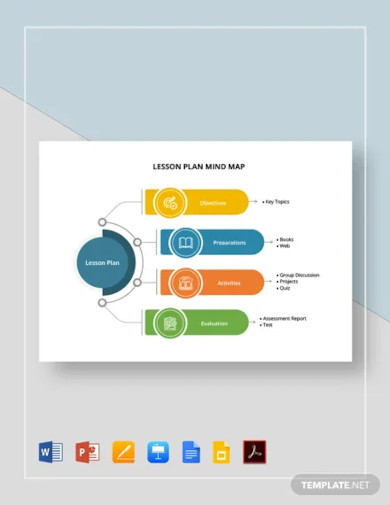
2. Lesson Plan Outline Template
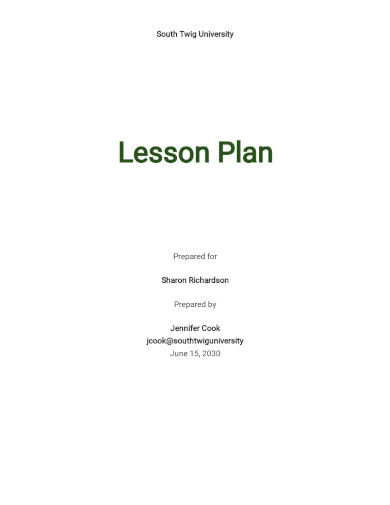
3. Intervention Lesson Plan Template
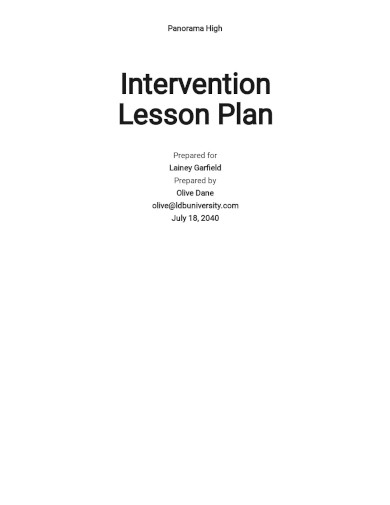
4. 5E Lesson Plan Template for English
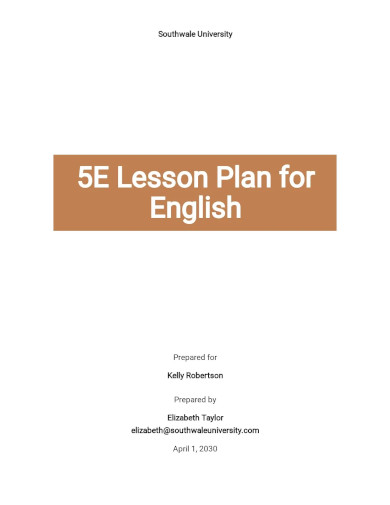
5. Evaluation Lesson Plan Template
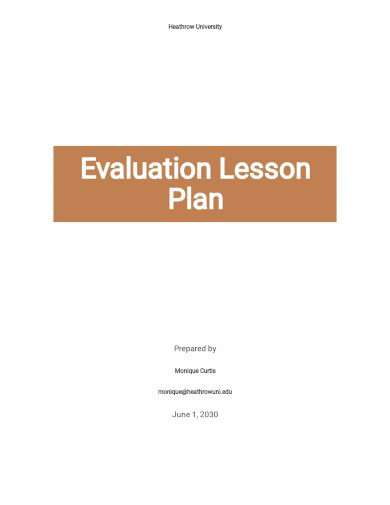
6. ASCA Lesson Plan Template
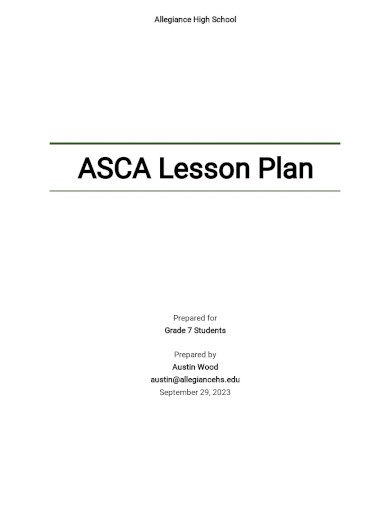
7. Daycare Lesson Plan Template
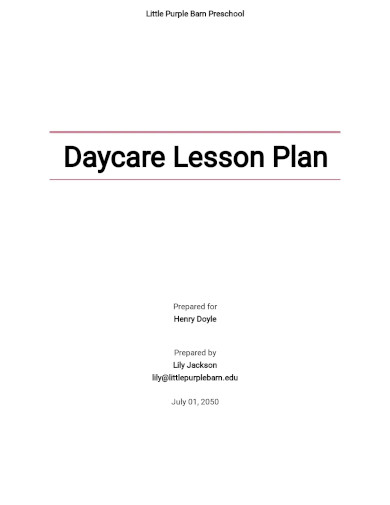
8. UDL Lesson Plan Template
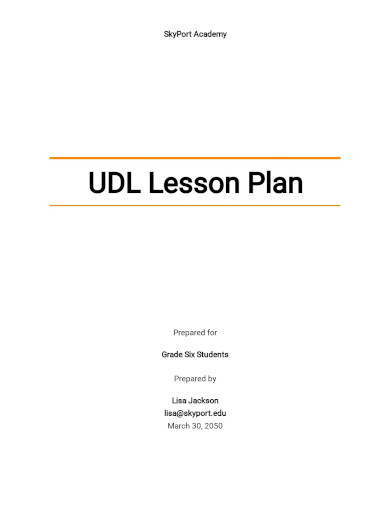
9. Curriculum Lesson Plan Template
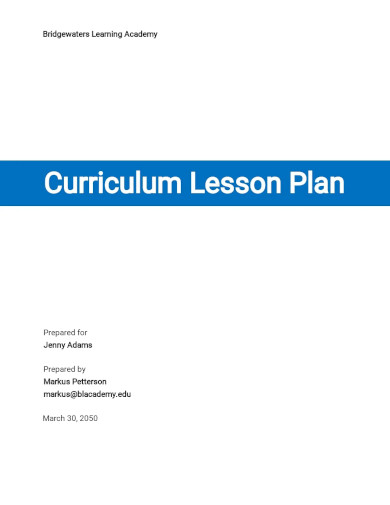
10. Elementary Lesson Plan Template
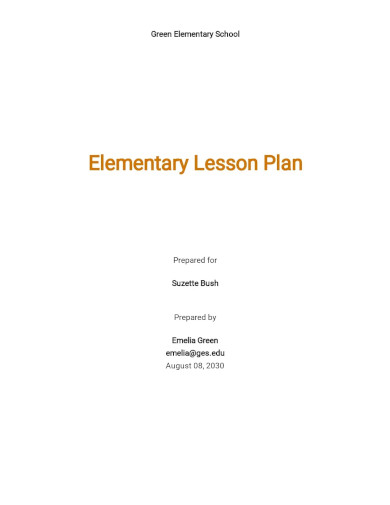
11. Homeschool Student Lesson Plan Template
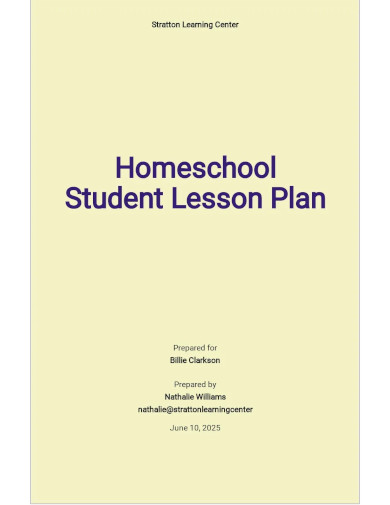
12. Physical Education Lesson Plan Template
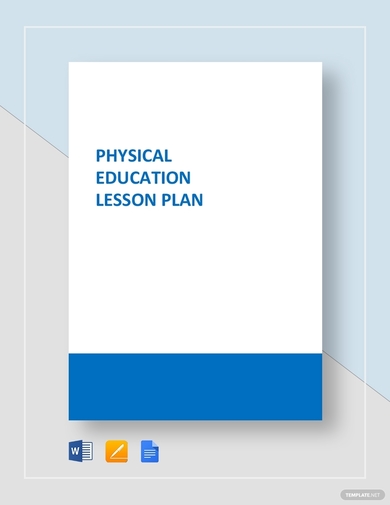
13. Preschool Lesson Plan Template
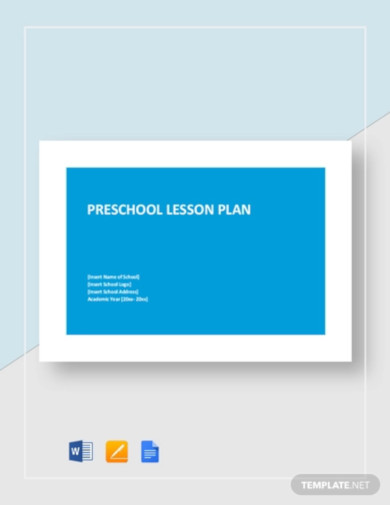
14. Blank Lesson Plan Template
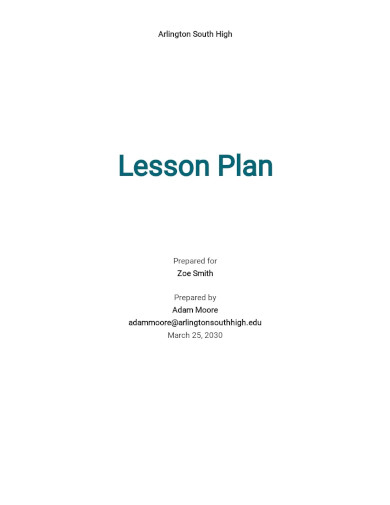
15. Teacher Lesson Plan Template
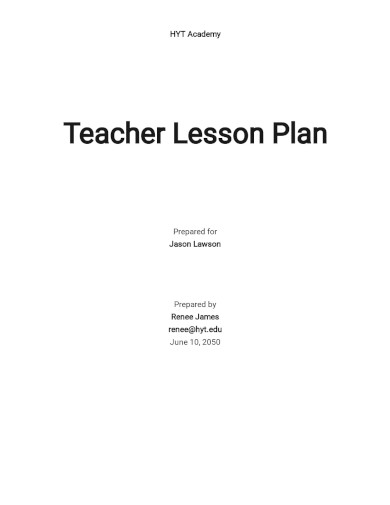
16. Student Teaching Lesson Plan
17. Lead Student Lesson Plan
18. Development of Lesson Plan
19. Lesson Plan Assignment
20. Structure of Lesson Plans
21. Lesson Plan Format
22. Lesson Plan Disclaimer
23. Notes on Lesson Plan
24. Volunteer Tutor Lesson Plan
25. Lesson Plan Activity
26. Sample First Day Lesson Plan
27. Lesson Plan and Implementation
28. Trainer Lesson Plan for Classroom
29. Tutor Lesson Planning Sheet
30. Cosmetology Lesson Plan
31. School Librarian Lesson Plan
32. Printable Tutoring Lesson Plan
33. Adaptations for Lesson Plan
34. Essential Elements of a Lesson Plan
35. University Student Lesson Plan
36. Student Tutor Lesson Plan
37. Physical Education Weekly Lesson Plan
38. Puberty Lesson Plan
39. Micro Teaching Lesson Plan
40. Lesson Plan Rubric
41. Benchmark Lesson Plan
42. Sequential Lesson Plan
43. Lesson Plan Self-reflection
44. One Page Lesson Plan
45. Lesson Plan Simple Format
46. Primary Lesson Plan
47. Lesson Plan in English
48. Lesson Plan Objective
49. Education Lesson Plan
50. Standard Lesson Plan
51. Preschool Friends Lesson Plan
52. Teaching Lesson Plan
53. Lesson Plan for College
54. Weekly Lesson Plan for Shared Reading
55. Lesson Plan in Physical Education
56. Student Lesson Plan in PDF
57. General Cosmetology Lesson Plan
58. Technology Lesson Plan Evaluation Checklist
59. Workshop Mini Lesson Planner
60. Creating a Lesson Plan
61. Expectations for Lesson Plan
62. Importance of Lesson Planning
63. Simple Weekly Lesson Plan
64. Daily Lesson Planner Sample
65. Lesson Plan Form
66. Lesson Plan Example
67. Sample Lesson Planning
68. Lesson Plan Assessment
69. Weekly Lesson Plan for Toddlers
70. Driving Instructor Lesson Planner
71. Lesson Plan and Staging
72. Draft Lesson Plan
73. Lesson Plan in PDF
74. Lesson Planning of Prose
75. Basic Lesson Plan
76. Foods for Life Lesson Plan
77. Two-Day Lesson Plan
78. Lesson Plan for Course
79. Workshop Model Lesson Plan
80. English Lesson Plan
81. Sample Lesson Plans
82. Strategies for Effective Lesson Planning
83. Format for Lesson Plan
84. Water Resources Lesson Plan
85. Science Lesson Plan
86. Instructor Lesson Plan
87. Listening Lesson Plan
88. Classroom Lesson Plan in DOC
89. College Lesson Plan Format
90. Training Lesson Plan
91. Elementary Lesson Plan in DOC
92. Body of Lesson Plan
93. Parallel Instructional Lesson Plan
94. Lesson Plans in DOC
95. Week 1 Lesson Plans
96. Internship Lesson Plan
97. Lesson Plan Template in DOC
98. Standards Based Lesson Plan
99. Psychology Lesson Plan
100. Special Education Lesson Plan
101. School Lesson Plan
What Is a Lesson Plan?
You may have seen this kind of thick or thin book-like feature your teachers would often be seen bringing around along with the stack of papers and other materials for class. It can also be mistaken as an academic book due to its colorful or plain looking front cover. For students, you may have seen your teacher bringing this with them wherever they may go, or may have been told to bring it to them while they were in the classroom. For those who are taking up the course as teachers, you may have been told to make this type of plan for either a day, a week, a month or even the whole school year which is possible really. But have you ever thought about what it really is? Have you any idea as to what it can really do or what its purpose would be? First of all, do you know what a lesson plan is? Whether you are a substitute teacher, an art teacher, a music teacher or even a preschool teacher, the one thing you all have in common is a lesson plan.
So what is a lesson plan? A lesson plan can either be a detailed, semi-detailed or a plan that is made by design. A road map for a teacher to know, see and understand where they are able to target the necessary things to be done, for the benefit of their students. An effective way to teach out a lesson, with appropriate teaching strategies that benefit students and their learning level and capacity. In addition to that, a lesson plan is also called a guide, a teaching guide on how to make the lesson fulfilling, entertaining and educational for the students. The teacher lists their goals for that specific topic and to write down the effective methods of delivering the topic to their students.
The Types of Lesson Plans
When writing your very own lesson plan, there are some things you have to know. There are 3 common types of lesson plans. Of course for some there are five types but the other two are not as common as the three. So these are the types of lesson plans that you need to know before you start making your own.
1. Daily Lesson Plan
A daily lesson plan is a type of lesson plan that is done daily. From Monday till Friday, you must do a different type of lesson plan. Each with its different set of topics, subjects, methods, objectives, goals and assessment. Daily lesson plans focus on everyday topics that can be done in a single day. Moving on to the next, would be a different type of topic. Daily lesson plans usually work for university students or for those who may be tutoring students.
2. Weekly Lesson Plan
For a weekly lesson plan, the difference between the daily lesson plan and the weekly lesson plan is, for daily you must be very specific with how you plan on doing the subject or the topic to class. A weekly lesson plan however, focuses on what you plan to do for the entire week. You focus on the topic that could be set for that week alone. Weekly lesson plans usually work if your students are in elementary level or middle school level.
3. Grade Level Lesson Plan
When writing a grade level lesson plan, the only difference this kind of lesson plan is to the rest is it is based loosely on the grade level of your student. For the daily and weekly lesson plan, it is usually a general type with no specific grade level. Which is usually used for university, tutoring or even for infants. A grade level lesson plan however, is a more specific type and should be based on the grade level of the class.
4. Semi-Detailed Lesson Plan
A semi-detailed lesson plan is a kind of lesson plan that is a mixture of general and specific. However, unlike the detailed lesson plan with all its specific goals, assessments and objectives, a semi-detailed lesson plan focuses mainly on the lesson and how it is being delivered. It also focuses on the general goals of the lesson and how students are going to be assessed throughout the class.
5. Detailed Lesson Plan
A detailed lesson plan focuses on making sure that everything is as specific as can be. This detailed lesson plan has a more lengthy and detailed objectives, purpose, topic to handle, the assessments to be done and the goals. Detailed lesson plans are mainly used when you plan to make every single detail perfect or to a tee. Detailed lesson plans are often used by teachers who plan out everything and how their lesson should go.
How to Write a Lesson Plan?
Now that we know what the types of lesson plans are, let’s proceed to how to write a lesson plan. Regardless of which type of lesson plan you may use, there are things to consider. Listed below are just a few tips on how to write a good lesson plan.
1. State Your Objectives
Another thing to remember when writing your lesson plan is to list down all your methods and strategies. As your methods and strategies are the basis and the guide to successfully reach your goal written down in your lesson plan. Remember, your methods and strategies must also fit the needs of your students. Avoid using strategies that would only hurt your students in the long run.
2. Write Down the Title and the Duration of the Lesson
Writing down the title and the duration of the lesson is key and important. You must be able to fit everything you wrote down in your lesson plan. This is where time management comes to play. Some classes only last around 30 minutes while others last 60 minutes. Fit what you must do in your objectives, lesson proper and assessment in 60 minutes. This is especially true for a daily kind of lesson plan.
3. List Your Methods
Another thing to remember when writing your lesson plan is to list down all your methods and strategies. As your methods and strategies are the basis and the guide to successfully reach your goal written down in your lesson plan. Remember, your methods and strategies must also fit the needs of your students. Avoid using strategies that would only hurt your students in the long run.
4. Set Some Assessment
After every end of the lesson, set some assessment. These assessments can range from homework, seat work and even examinations. The purpose of the assessment is to see if your students have learned something today or have at least understood the topic you are teaching. Assessments can also help you in a way that they are able to show you where your students may need some improvement or if they are ready for the next topic to be discussed.
5. Proofread Your Lesson Plan
By the end of the day, no matter which lesson plan you use for your lessons or classes, you must always proofread your work. Check if you have written and placed all the necessary details that you need. Recheck everything to see if you have completed your objectives, your assessments and your lesson proper. Each information in your lesson plan works well when it is complete.
FAQs
What is a lesson plan?
A lesson plan is a road map, a detailed or semi-detailed action plan for teachers. It is their guide to a good and proper lesson flow in class.
What should be avoided when writing your lesson plan?
When writing, avoid using the pronoun I. As this lesson plan does not cater to your needs. Your lesson plan must cater to the needs of your students. You may use “the students will be able to”.
How many objectives should be written in a lesson plan?
At least a minimum of three objectives and a maximum of five. Each objective must co-relate with one another, but must not mean the same thing.
Why is it important to add an assessment in the lesson plan?
The assessment is there to see and to check whether or not the students were able to follow or understand the lesson being taught to them.
Why is it important to proofread your lesson plan?
The reason why it is important to proofread your lesson plan is to check if you have written out everything that is necessary. The second reason is, your superiors may want to read it first and see if you have completed the task of writing down your lesson plan in complete detail. Lastly, proofreading your lesson plan would only help you find any mistakes or anything you may have missed. Since if one information is missing in your lesson plan, it may not go smoothly. Your lesson plan does not need to be perfect, it just needs to be semi detailed or detailed and complete.
Being a teacher can be a difficult and demanding job as it is. But writing out detailed or semi structured lesson plans can also be a challenging thing, yet it goes with the job. However, on a positive note, when you are able to know which lesson plan you choose to do, figure out your objectives and lesson proper, everything follows from there. Good luck!



